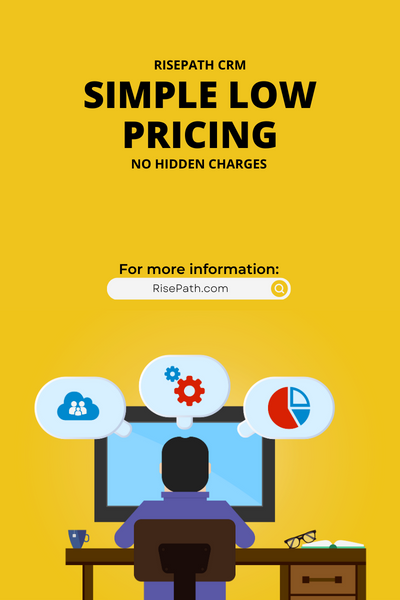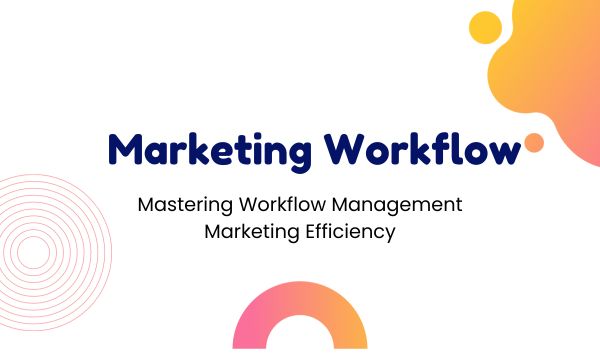Sales Performance Management (SPM) software is a data-informed approach to planning, managing, and analyzing sales performance at scale. It is a suite of operational and analytical functions that automate and unite back-office operational sales processes, including territory and quota management, incentive compensation, and sales analytics. SPM software enables organizations to gain visibility and control over the core actions that a sales organization performs, driving revenue and sustaining growth.
The importance of SPM software lies in its ability to manage sales performance management processes more efficiently. It allows organizations to develop sales strategies that cover all parts of the sales cycle and impact all steps of the sales process. By properly managing the various aspects of sales performance, SPM software can help organizations improve sales productivity, reduce costs, and increase revenue.
Also Read: The Role of Email Marketing in Customer Retention
SPM software offers a range of features and benefits that can help sales teams in various ways[6]. Some of the key features of SPM software include: –
In-depth sales analytics: SPM software goes beyond regular CRM reports and generates in-depth sales analytics that provide valuable insights into sales performance. Territory and quota management: SPM software allows organizations to manage territories and quotas more effectively, ensuring that sales teams are aligned with the right accounts and targets.
Incentive compensation: SPM software helps organizations design and manage incentive compensation plans that motivate sales teams and align with business goals. Sales coaching and training: SPM software provides sales coaching and training programs that help sales teams improve their skills and performance.
Feedback and collaboration: SPM software facilitates feedback and collaboration between sales teams and managers, enabling continuous improvement and growth. By leveraging these features, organizations can improve their sales performance management processes, drive revenue growth, and sustain long-term success.
Sales Planning and Forecasting
Sales planning and forecasting are critical components of effective sales performance management. Sales plans and forecasts provide a roadmap for sales teams to follow, outlining goals, targets, and strategies for achieving success. Sales performance management software, such as Jedox, can automate and support the creation of sales plans and forecasts.
This software can help sales teams to: – Set achievable sales targets – Allocate resources effectively – Track progress towards goals – Adjust strategies as needed By providing a clear and actionable plan, sales performance management software can help sales teams to work more efficiently and effectively, resulting in increased revenue and faster growth.
In addition to creating sales plans and forecasts, sales performance management software can also analyze sales data and trends. This analysis can help sales teams to identify patterns and insights that can inform future sales strategies and tactics. By understanding the data, sales teams can: – Identify areas for improvement – Optimize sales processes – Pinpoint potential challenges or obstacles.
Make data-driven decisions Sales performance management software can provide real-time insights into sales data, allowing sales teams to respond quickly to changes in the market or customer behavior.This can help to maintain a competitive edge and increase sales performance over time.
Another key benefit of sales performance management software is the identification of sales opportunities and risks. By analyzing sales data and market trends, sales teams can identify potential areas for growth or expansion, as well as potential risks or threats to sales performance.
This information can help sales teams to: – Target high-potential customers or markets – Develop new products or services – Mitigate risks or challenges – Stay ahead of competitors Sales performance management software can provide valuable insights into the market and customer behavior, helping sales teams to make informed decisions that drive sales growth and success. Leveraging the power of data and analytics, sales performance management software can transform sales strategies and drive results.
Sales Management Software
Sales performance management software can be a valuable tool for businesses of all sizes, helping to streamline sales processes and increase productivity. Many software options are available for free, making it easier for small businesses to access the benefits of sales management software.
Some of the best free sales management software options include: – RisePath Sales, HubSpot Sales Hub – Salesforce Sales Cloud – Scratchpad – Dooly – Monday Sales CRM – Ambition – Zoho CRM These software options offer a range of features, including lead tracking, pipeline management, and reporting, making them ideal for small businesses looking to improve their sales processes.
In addition to sales management software, businesses can benefit from free inventory and sales management software. These options allow businesses to track inventory levels, sales data, and customer information in one centralized location, making it easier to manage day-to-day operations.
Some of the best free inventory and sales management software options include: – RisePath’s Sales software options offer features such as inventory tracking, order management, and reporting, making RisePath ideal for small businesses looking to streamline your sales and inventory processes.
When choosing sales performance management software, it is essential to consider the specific needs of your business. Some software options may offer more comprehensive features, while others may be more straightforward and user-friendly.
Additionally, businesses should consider the size of their sales team and the volume of sales data they need to manage. By taking the time to research and compare different software options, businesses can find the best free sales management software to meet their specific needs.
Crm for sales
Customer Relationship Management (CRM) refers to the process of managing and analyzing interactions with customers and potential customers. In the context of sales, CRM software is used to streamline and automate sales processes, making them more efficient. Sales performance management (SPM) is a framework for measuring the success of a sales team with the objective of improving performance.
SPM is a mix of operational and analytical capabilities that connect back-office processes like sales planning and compensation with front-office activities like lead generation and customer service[23]. Free sales CRM software options include RisePath’s Sales and CRM software.
CRM software for sales management offers features like goal setting and data analysis to help businesses automate and streamline their sales management processes. Free SPM software options can be a great way for small businesses to get started with sales performance management.
Some software options like Spiff, Performio, Everstage, and Xactly Incent offer specialized features for sales compensation management. When selecting sales performance management software, it’s important to consider factors like ease of use, scalability, and integration with existing systems.
Reviews, comparisons, and pricing information for sales performance management software can be found online. By implementing CRM software for sales management and sales performance management software, businesses can automate and streamline their sales processes, leading to improved efficiency and increased revenue.
Efficient Lead Management
Sales Management Software plays a pivotal role in optimizing lead management processes. It simplifies lead capture by enabling businesses to gather leads from various sources, including websites, social media, and marketing campaigns, into a centralized database. This streamlines lead tracking and ensures that no potential customer falls through the cracks.
Also Read: Why Custom CRM Might Not Be the Best Choice
Moreover, it provides sales teams with valuable insights into lead behavior and preferences, facilitating more personalized interactions. By automating lead nurturing and follow-up processes, Sales Management Software helps convert leads into customers more efficiently, ultimately driving revenue growth.
Sales Incentives and Compensation
Sales incentive programs are a key component of sales performance management software, allowing businesses to design and implement effective incentive plans to motivate their sales teams. These programs can take various forms, such as bonuses, commissions, or non-monetary rewards, and are designed to align the goals of the sales team with those of the organization.
Sales incentive management software provides tools for designing, planning, and implementing complex sales incentive plans and commission structures, making it easier for businesses to manage and track the effectiveness of these programs[2]. By leveraging the capabilities of sales incentive management software, businesses can create incentive programs that drive employee performance and contribute to overall sales success.
Sales compensation planning and management is another critical aspect of sales performance management software. This software allows businesses to design and manage compensation plans that align with the goals and objectives of the organization, while also motivating sales teams to achieve their targets.
Sales compensation planning software can help businesses to accommodate complex sales hierarchies and logic for compensation plans, sales crediting, territories, and quotas, using a fully integrated solution. By streamlining the compensation planning and management process, businesses can ensure that their sales teams are appropriately incentivized and rewarded for their performance.
Performance-based rewards and recognition are an important component of sales performance management software. This software can help businesses to generate real-time data about salespeople’s output and quota achievement, allowing employees and managers to model potential outcomes and adjust their strategies accordingly.
By providing a reference tool for managers to guide them through incentivizing salespeople, sales performance management software can help businesses to improve their sales performance and drive revenue growth. With the right tools and motivation, sales teams can achieve their targets and contribute to the overall success of the organization.
Sales Analytics and Reporting
Sales performance management (SPM) software offers comprehensive data collection and analysis capabilities to help businesses gain insights into their sales performance. SPM software can capture sales data from multiple sources and generate in-depth sales visibility beyond regular CRM reports. By analyzing this data, businesses can identify patterns, trends, and areas for improvement in their sales performance. This data-driven approach to sales management can help drive revenue and sustain business growth.
Customizable dashboards and reports are another essential feature of SPM software. These dashboards and reports can be customized based on the business’s key performance indicators (KPIs) to provide real-time insights into sales performance.
For example, sales managers can create reports to track lead generation, sales pipeline, and revenue generation. Customizable dashboards and reports can help sales teams and managers gain insights into sales performance and make data-driven decisions to improve sales outcomes.
Predictive analytics and insights are another key feature of SPM software. These features use machine learning and artificial intelligence to analyze sales data and predict future sales outcomes. Predictive analytics can help businesses identify potential sales opportunities, forecast revenue, and optimize sales performance.
By leveraging predictive analytics and insights, businesses can make informed decisions about resource allocation, sales strategies, and goal setting. These insights can help businesses stay ahead of the competition and drive revenue growth.
Sales Performance Evaluation
Sales performance metrics and KPIs (Key Performance Indicators) are essential tools in evaluating the success of sales efforts. These data points provide a structured and quantifiable way to measure the performance of both the sales team and individual sales representatives.
By tracking metrics such as revenue generated, number of deals closed, and customer acquisition costs, sales managers can gain valuable insights into the effectiveness of their sales strategies. Additionally, these metrics can be used to set goals and benchmarks for future performance, helping to drive continuous improvement and growth.
Performance tracking and benchmarking are critical components of sales performance management]. By tracking sales metrics and KPIs over time, sales managers can identify trends, patterns, and areas for improvement. Benchmarking against industry standards and competitors can also provide valuable insights into the relative success of sales efforts and help to identify opportunities for growth.
Also Read: Maximize Your Marketing Efforts with Free Marketing Automation Tools
Sales performance management software can provide automated tracking, benchmarking, and analytics capabilities, streamlining the process and providing real-time insights into sales performance.
Performance evaluation and feedback are key elements of effective sales performance management. By providing regular feedback to sales representatives, managers can help to identify areas for improvement and provide guidance and support for achieving goals. Performance evaluations can also be used to identify top performers and provide recognition and rewards for their efforts.
Sales performance management software can facilitate these processes, providing tools for performance tracking, evaluation, and feedback. By leveraging these capabilities, sales managers can drive continuous improvement and growth in their sales teams, ultimately contributing to the success of the organization as a whole.
Integration with Other Systems
One of the key features of sales performance management software is its ability to integrate with other systems, such as CRM and ERP systems. By integrating with these systems, sales performance management software can provide a more comprehensive view of customer data, sales pipelines, and revenue projections.
This integration can help sales teams to streamline their workflow and make more informed decisions based on real-time data. The integration with CRM and ERP systems can also help to automate certain tasks, such as data entry and reporting, freeing up sales teams to focus on more strategic activities.
In addition to CRM and ERP systems, sales performance management software can also integrate with marketing automation and analytics tools. This integration can help sales teams to better understand their customers’ behavior, preferences, and needs, allowing them to tailor their sales strategies accordingly.
By leveraging the insights provided by marketing automation and analytics tools, sales teams can improve their targeting and lead generation efforts, ultimately driving higher conversion rates and revenue growth.
Another important integration for sales performance management software is with financial and accounting systems. This integration can help sales teams to track their commissions and bonuses accurately, ensuring timely and accurate payment. It can also help to provide a more complete view of revenue and profitability, allowing sales teams to make more informed decisions about their sales strategies and priorities.
With the integration with financial and accounting systems, sales performance management software can help to improve the accuracy and efficiency of financial reporting, reducing the risk of errors and improving overall financial performance.
Security and Compliance
One of the most critical considerations when selecting a sales performance management software is data security and privacy[46]. When it comes to managing sales data, it is essential to ensure that sensitive information is protected from unauthorized access or theft.
This includes personal information about customers, sales figures, and other sensitive business data. The best sales performance management software vendors will have a proven track record of data security and privacy protection, including: – Encryption of data in transit and at rest – Access controls and authentication protocols – Regular security audits and vulnerability assessments By prioritizing data security and privacy, organizations can avoid costly data breaches and maintain the trust of their customers and stakeholders.
Compliance with regulatory requirements is another crucial aspect of sales performance management software. Depending on the industry and location, organizations may be subject to various regulations that dictate how they collect, store, and use sales data. Failure to comply with these regulations can result in significant fines, legal penalties, and reputational damage.
The best sales performance management software vendors will have features and functionalities that enable compliance with regulatory requirements, such as: – Tracking and reporting of promotional activities – Recording of consent for data collection and use – Preservation of data for a specified period By ensuring compliance with regulatory requirements, organizations can avoid legal and financial risks and demonstrate their commitment to ethical business practices.
Data governance and control are also essential considerations when selecting a sales performance management software[48]. Effective data governance can help organizations manage their sales data more efficiently, reducing duplication and minimizing management efforts.
The best sales performance management software vendors will have features and functionalities that enable data governance and control, including: – Centralized management of data access and permissions – Data quality management and validation – Integration with other business systems and applications By implementing effective data governance and control, organizations can improve the accuracy and reliability of their sales data, leading to better decision-making and more efficient sales processes.
Implementation and Support
Implementation planning and execution are crucial components of successful sales performance management (SPM) software integration. Before implementing the software, it is essential to develop a clear plan that outlines the goals and objectives of the SPM process. The plan should also include a timeline, budget, and a team responsible for executing the implementation.
Once the plan is in place, the software can be integrated into the existing sales infrastructure, and the data necessary for analysis can be collected. A well-executed implementation plan can help ensure that the SPM software is up and running smoothly, providing accurate and timely data for analysis.
Training and support services are also crucial to the successful integration of SPM software[52][53]. The software can be complex, and employees may require training to use it effectively. Training should be provided to all employees who will be using the software, including sales representatives, managers, and analysts.
This training should cover the software’s features, how to input data, how to analyze data, and how to generate reports. Ongoing support should also be provided to ensure that any issues that arise are addressed promptly and efficiently.
Ongoing maintenance and upgrades are necessary to ensure that the SPM software continues to function effectively. As the sales environment changes, the software may need to be updated or modified to reflect new trends or sales strategies. Regular maintenance can help ensure that the software remains up to date and that any bugs or issues are addressed promptly.
Upgrades may also be necessary to take advantage of new features or functionality that can help improve sales performance. By providing ongoing maintenance and upgrades, organizations can ensure that their SPM software remains an effective tool for managing and analyzing sales performance.
Benefits And Limitations
Benefits:
1. Improved sales performance: Sales performance management software provides tools and features that help sales teams track their performance, set goals, and monitor progress. This leads to increased motivation and productivity, resulting in improved sales performance.
2. Streamlined processes: Sales performance management software automates various sales processes such as lead management, territory management, and incentive management. This streamlines operations, reduces manual effort, and increases efficiency.
Limitations:
1. Cost: Implementing and maintaining sales performance management software can be expensive, especially for small businesses with limited budgets. The initial investment, along with ongoing subscription fees and customization costs, may deter some organizations.
2. Learning curve: Sales performance management software often comes with a learning curve. Employees may need time to adapt to the new software and understand its features and functionalities. This can temporarily decrease productivity during the transition period.
Solutions:
1. Cost-effective options: Instead of investing in expensive enterprise-level software, smaller businesses can explore cost-effective options such as cloud-based or subscription-based solutions. These options offer similar functionalities at a more affordable price point.
2. Training and support: Providing comprehensive training and ongoing support to employees can help them overcome the learning curve. This can include training sessions, online resources, and dedicated support staff to assist with any questions or issues.
Summary:
Sales performance management software offers significant benefits such as improved sales performance and streamlined processes. However, it also comes with limitations such as cost and a learning curve. By considering cost-effective options and providing adequate training and support, organizations can mitigate these limitations and fully leverage the advantages of sales performance management software.
Why RisePath Sales Is Your Ideal Partner
When it comes to selecting the right Sales Management Software (SMS), the choice is crucial. Your decision can profoundly impact your sales processes, team efficiency, and overall business growth. Among the myriad of options available in the market, RisePath Sales stands out as an exceptional choice for businesses aiming to supercharge their sales endeavors. Here’s why RisePath Sales should be your preferred partner:
- Comprehensive Suite of Features: RisePath Sales offers a comprehensive suite of features that cover every facet of sales management. From lead capture and nurturing to sales forecasting and analytics, RisePath Sales empowers your team with the tools needed to excel at every stage of the sales funnel.
- Integration Excellence: RisePath Sales seamlessly integrates with other crucial business software, including Customer Relationship Management (CRM) systems. This integration ensures that your sales and customer data flow effortlessly between systems, providing a holistic view of your customer interactions.
- Data Security: Your data is invaluable, and RisePath Sales understands this. Robust data security measures are at the core of RisePath Sales, ensuring that your sensitive customer and sales data remain protected from any potential threats.
- Mobile Accessibility: In today’s dynamic business landscape, mobility is key. RisePath Sales is designed with mobile accessibility in mind, allowing your sales team to remain productive and responsive, even while on the go.
- Task Automation: RisePath Sales simplifies repetitive tasks through automation, enabling your sales team to focus on high-value activities like building relationships and closing deals.
- Personalization: Personalization is the heart of effective sales, and RisePath Sales facilitates it. The software allows you to personalize your interactions with customers, offering tailored content and experiences that resonate.
- Continuous Support and Training: RisePath Sales doesn’t stop at implementation. It provides continuous support and training for your sales team, ensuring that you maximize the software’s potential over the long term.
RisePath Sales is not just another Sales Management Software; it’s a strategic partner that can elevate your sales strategy to new heights. With its robust features, integration capabilities, and commitment to data security, RisePath Sales ensures that your organization is well-equipped to streamline sales processes, nurture leads effectively, and make informed, data-driven decisions. When it comes to choosing an SMS that aligns with your business goals and empowers your sales team, RisePath Sales is the ideal choice.
In conclusion, sales performance management software is an essential tool for businesses looking to improve their sales performance and increase revenue. With features such as sales planning and forecasting, sales management software, CRM for sales, sales incentives and compensation, sales analytics and reporting, sales performance evaluation, integration with other systems, security and compliance, and implementation and support, sales performance management software offers a comprehensive solution to manage and optimize sales operations. By leveraging the benefits of sales performance management software, businesses can gain valuable insights, make data-driven decisions, and improve their overall sales performance.
For more information and a free informational ebook, please add your contact info. Thanks.








Comments are closed, but trackbacks and pingbacks are open.